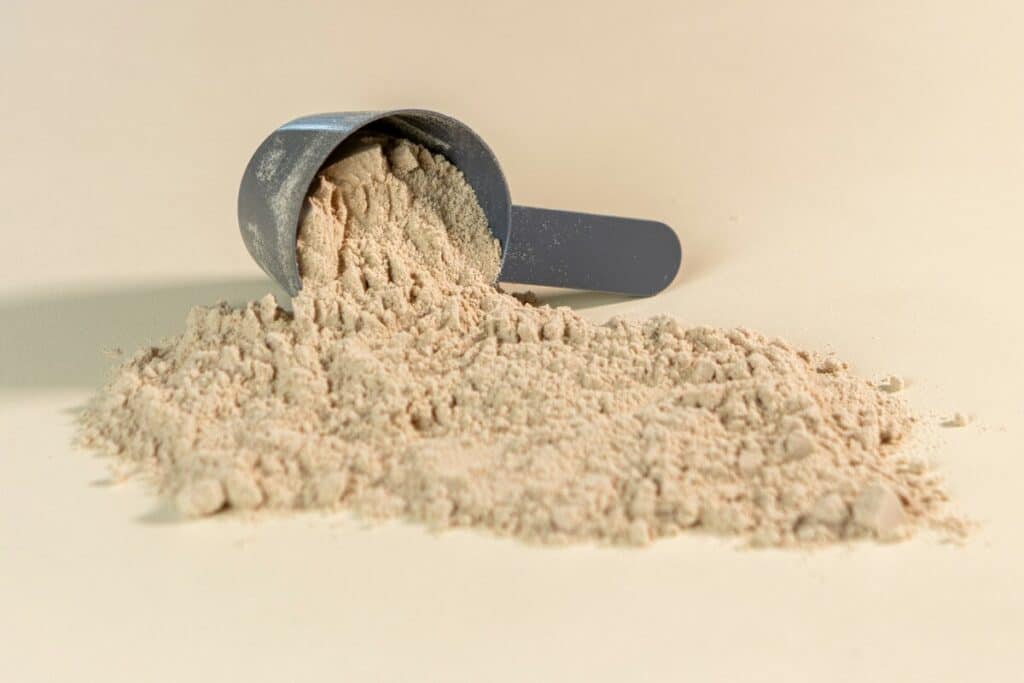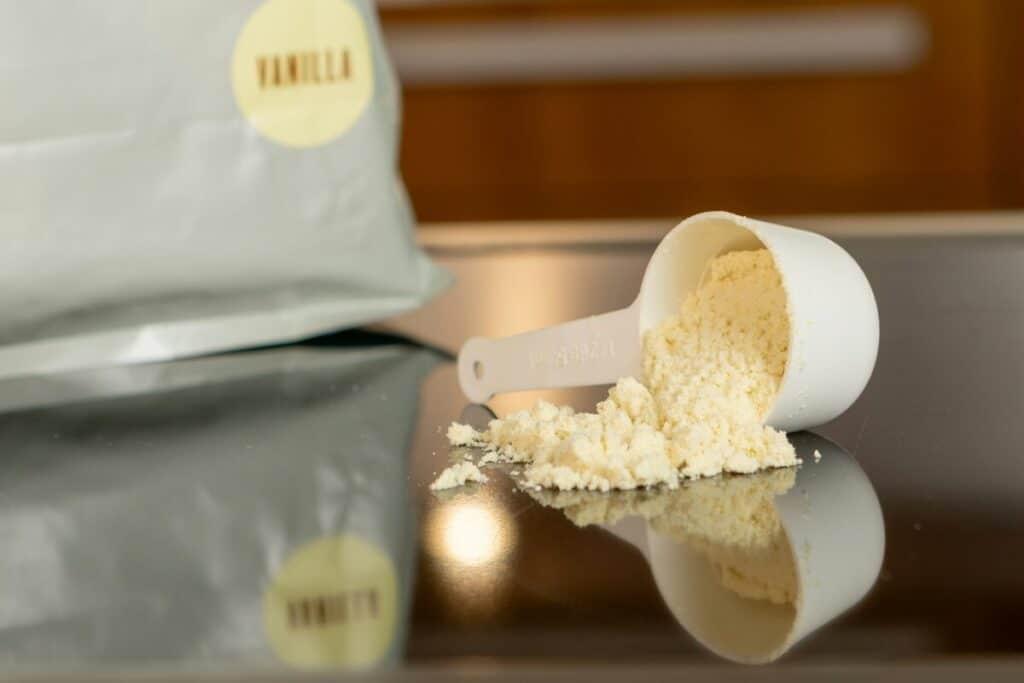
Collagen powder and protein powder are both popular supplements in the wellness industry. They’re both praised for their ability to boost protein intake and support various health benefits. However, despite their similarities, they serve different purposes and offer distinct advantages.
In this article
Whether you’re aiming to enhance your skin’s elasticity, boost your muscle strength, or simply add more protein to your diet, knowing the key differences between these supplements can greatly influence your decision. Here, we compare the benefits and uses of collagen and protein powder to help you determine the right supplement for your needs.
What Exactly is Collagen?
Collagen is the most abundant protein in our body. It provides structure and strength to our skin, nails, bones, and muscles. As we age, collagen production decreases, which may lead to wrinkles and joint pain.
Why bother with collagen? Simply because our bodies produce less of it over time. Collagen supplementation can help you maintain youthful skin, healthy hair, and strong nails, and assist with joint pain. It’s an excellent boost if you’re into a full-on beauty and health regime.
What is Protein Powder For?
Shifting gears, what about protein powder? Protein is a vital nutrient needed for numerous bodily functions, including muscle growth and repair. You probably associate protein powders with gym-goers, but they can also be beneficial if you’re just looking to up your protein intake.

Protein powders are not just for the gym junkies. They’re for everyone. Regardless of your activity level, you need protein in your diet. For those who struggle to get enough from food alone, protein powders can be a convenient option. They can also support post-workout muscle recovery and development.
[Related: Plant-Based Protein vs Whey Protein Showdown]
Can Collagen Powder and Protein Powder Be Used Interchangeably?
The simple answer is no. While both are sources of protein, they vary based on their amino acid composition. Collagen contains a unique combination of amino acids compared to typical animal or plant-based protein powders.
Collagen vs Protein Powder: Which One is Right for You?
Now, the ultimate question – collagen or protein powder? If you’re after radiant skin, luscious hair, robust nails, and potentially some relief from joint pain, collagen is your best bet. However, if muscle growth or repair is your primary concern, or if you simply need to increase your daily protein intake, protein powder is the way to go.
Now, to wrap it all up. In the battle of collagen vs protein powder, it’s really down to your personal health goals. Both have their distinct benefits and uses. Your decision should be based on what your body needs and what fits best with your wellness strategies.
Frequently Asked Questions (FAQ)
Got more questions about collagen vs protein powder? Check out some commonly asked questions about this topic:
Do I need to take protein supplements if I eat a balanced diet?
Not necessarily. If your diet includes a variety of protein sources and meets your daily protein requirements, additional supplements may not be necessary. However, those with higher protein needs, such as athletes or individuals with specific health conditions, might benefit from supplementation.
Is it safe to take collagen and protein supplements together?
Yes, it is generally safe to take both supplements together, as they can complement each other by providing different types of benefits. However, it’s always wise to consult with a healthcare provider to tailor supplementation to your individual needs and avoid excessive protein intake.
Are there any side effects to taking collagen or protein supplements?
Both supplements are generally safe for most people when taken as directed. However, some may experience digestive disturbances, such as bloating or gas. Always check with a healthcare provider before starting any new supplement, especially if you have underlying health conditions or are pregnant.
